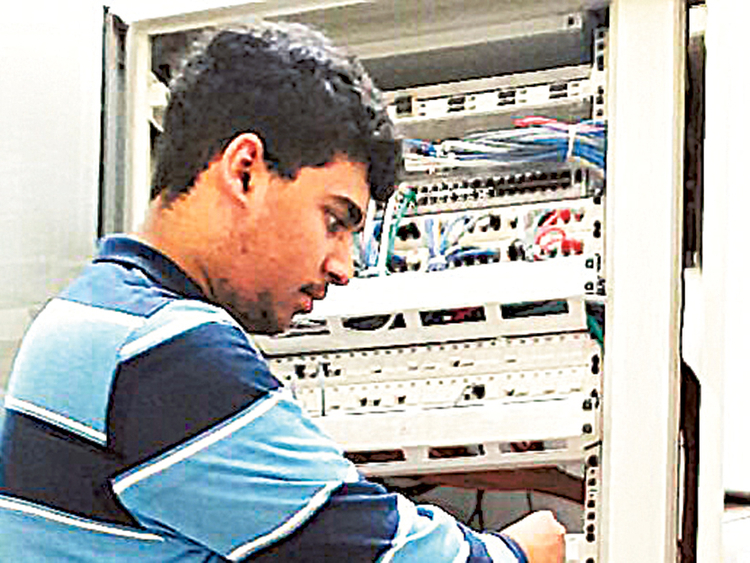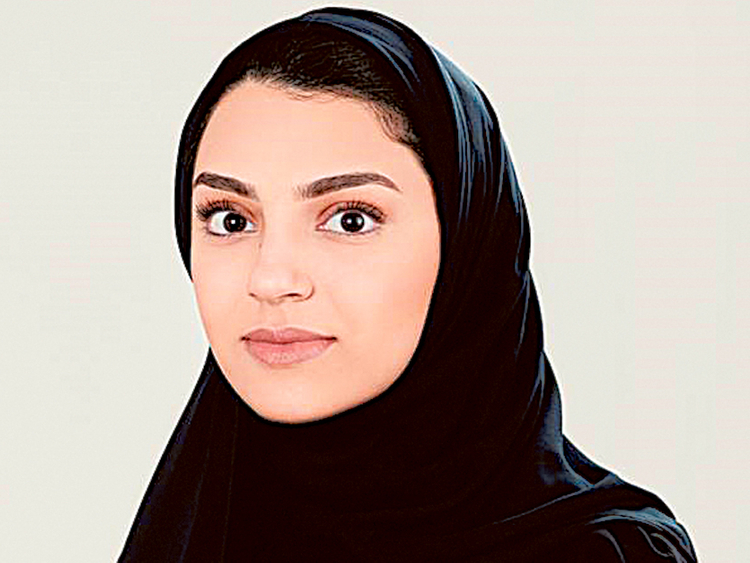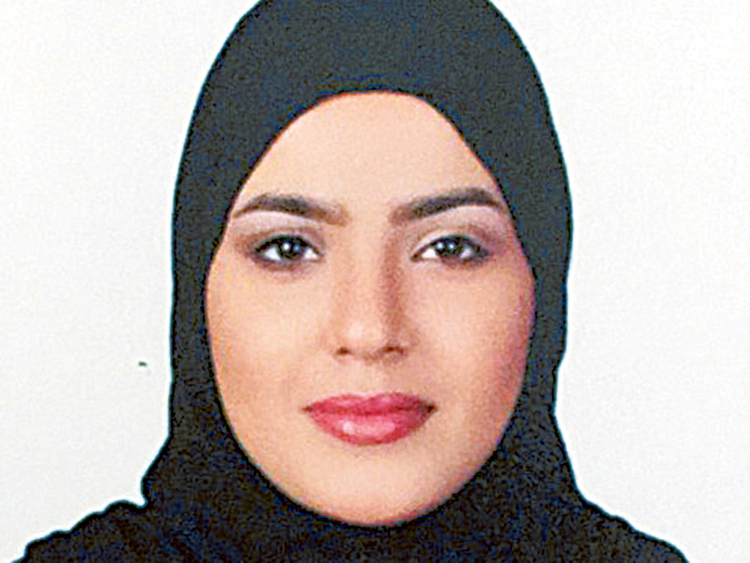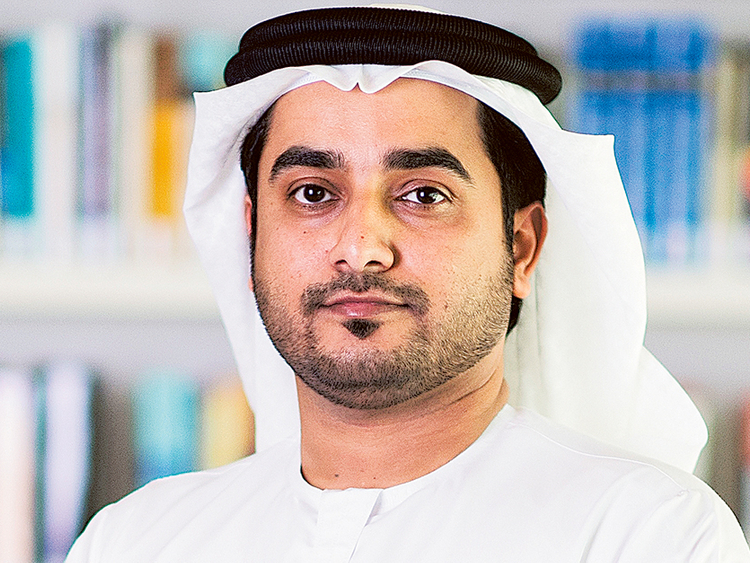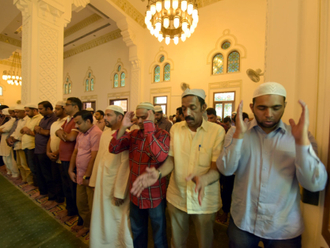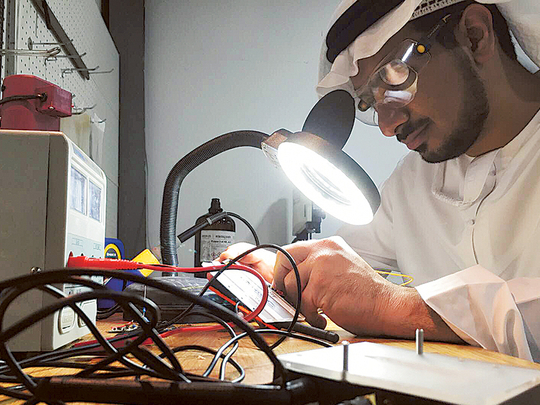
Abu Dhabi: As the UAE prepares to celebrate its 45th National Day, of the many enduring values that have helped shape the country, innovation occupies an important place. The creative spirit of Emiratis has been a driving force in ringing in changes that are aligned with the country’s goals both social and economic. Throughout the progress and growth of the UAE, one of the key goals among the country’s leadership — starting with the late Shaikh Zayed Bin Sultan Al Nahyan, the founding father of the UAE was to cultivate and invest in its people who were viewed as the invaluable asset of the country and its future.
Gulf News spoke to Emirati innovators and inventors whose commitment to nation-building has been a core component of their dreams for their country.
Khalifa Al Rumaithi, 16
Youngest Emirati to have a registered patent in the US
“It makes me feel very proud to be the youngest Emirati to have received a patent for my work. I am passionate about inventing things and I have doing this since I was seven years old.
“I want to help my country and society. If there is a problem, I want to try and find a solution to it.”
Invention
“The technology I patented in the US was for my invention called Eye Safe Zone. This system works to protect children from getting too close to the television, which many young children often do, causing damage to their eyes. As soon as the child gets too close to the television, a message will appear on the TV screen telling the child to please move back. Once the child moves back, the programme will resume. This is done by a distant sensor placed on the device. The device can be put on the table or next to the television and it will be able to detect the child’s proximity.
“Another recent project of mine that I worked on through the summer of 2016 is called eStudent — a system that uses technology to track and monitor attendance of school students allowing parents to know where their child is. It works by having an electronic gate at the school entrance and marks a student’s entry with the card each student will carry. Electronic readers placed on the gate will detect this card.
“Once the cards are detected either leaving or entering the school, the system will record this and mention the time — so schools and parents can have the data.
“I believe it is also important to mention the strong support that has always been given to me by the Rulers of the UAE. They are always constantly encouraging and giving us the tools we need to succeed. I believe that I am very fortunate and that other young Emiratis should consider this as a blessing and a motivation to pursue their own inventions for the UAE.”
Amnah Sultan Bin Askoor, 24
Invention: Created a substance extracted from palm tree waste to stop corrosion
The youngest among 10 siblings, Bin Askoor’s school years were tough on her to say the least.
“I did not go to kindergarten but enrolled in primary school. I was a big and heavy girl and therefore was constantly bullied, pushed and beaten by my classmates due to my size. I hated the physical education class because I could not move about easily and exercise. I was always scared and wanted to stay alone, and spent time in the library because I had no one to talk to in school.”
Despite this, she was an obedient and polite student, she says, who was liked by most of her teachers who believed in her and supported her. “I was among the top five students in class and the girls bullying me were also among the top students but would get annoyed when I scored high grades and this make me feel bad about myself,” says Bin Askoor.
Though she could not bring herself to talk to her parents about her problems at school, she found support in her elder sisters, Asma and Shaikha. “[They] would stand up for me in school.”
As she became older, “I became more confident and wouldn’t let anyone hurt my feelings and, mostly, I wanted to prove to everyone that I am smart and will succeed in my studies,” says Bin Askoor. “I was passionate about science and my teachers would also compete among themselves to have me on their teams and would nominate me to represent the school in contests.”
Her love for science has endured and, today, having graduated from UAE university in Al Ain with a bachelor’s degree in chemical engineering, she is harnessing her knowledge to push innovation to the fore.
Innovation
“A leading problem faced by many industries is corrosion, especially with ships at sea. This also affects the marine environment.”
Amnah found a solution by extracting a chemical from palm tree waste — a readily available natural resource that is usually discarded.
“From the palm tree waste, a specific organic chemical is extracted, and from these chemicals, we can actually create a substance that protects against corrosion. The plan is to use this substance mainly on ships to stop their metal from corrosion.”
Bin Askoor believes her idea will find widespread practical use and benefit the marine environment. “The chemical substance is also environmentally friendly,” she says.
“I am proud to have been involved in this work because I am helping my country. Protecting the environment is important as the environment has always played a prominent role in the history of our country. My plans are to keep improving this project and also to work on creating other projects.”
Ahmad Al Jabari, 36
Invention: A water-saving device for mosques
Professor and a father of three children, Ahmad Al Jabari from Al Ain is passionate about physics, experimentation, sustainability and natural resource conservation. He is also very appreciative of his ancestors who acted responsibly in using the scarce resources in the country. He aspires to pass on this passion and awareness to the younger generations.
“I recall passing by the mosque at Masdar City before payers and I was surprised by the amount of water wasted and drained. So I approached people and some said they were conscious of [the wastage] while others said there’s plenty of water in the sea. So I decided to step in and created a simple, cheap, handy and easily adjustable water vessel that can limit the water wastage. My 10-year-old daughter, Alia, and seven-year-old son, Abdullah, were very impressed when they saw my water vessel creation.”
Al Jabari feels he is privileged to get a chance to educate his students and children about science and its ability to develop solutions to serve humanity. “I would love to see Emiratis appreciating science and looking at the future with a scientific approach,” he says.
His interest in recycling and conservation is due to his family “who are very conscious about the importance of conserving natural resources, especially water”, said Al Jabari. “My wife and I are both passionate about the environment and we taught our kids not to waste water while brushing their teeth or washing their hands.”
As a young boy, Al Jabari wanted to be a pilot. But he also had a natural curiosity about how things worked. “I experimented by fixing and mending TV sets, alarm clocks, electronics, air conditioners and computer circuits. I love science and my favourite subjects have always been chemistry, physics and maths.”
Invention
“This device can be fitted on to any existing ablution taps. All you need are four screws to attach the device.
“On the vessel there is a line that marks the 600ml point, which is the Islamic guidance on how much water should be used. It allows the worshipper to visualise the water limit and, hopefully, desist from using more water.
“I have received many offers from manufacturing companies but I have said that it is not for sale because I don’t want this device to be used as a product to make money but rather as something that is used to encourage people to start using less water. For me, this invention is for my country.”
Aisha Salem Al Bakri, 20
Invention: A project that uses nanomaterials to purify water
The youngest child in a family of four, Al Bakri was a pampered child. “My dad has always been my role model. I remember telling him I want to become an entrepreneur, but when I was in high school I decided that engineering is my career path. However, one aspect that hasn’t changed is my need to make a difference in the world.”
The chemical engineering student from Ras Al Khaimah aspires to create innovative products that are sustainable and eco-friendly.
“I was watching a documentary on poor countries which lacked proper water treatments. So I said to myself, why not produce a cheap and affordable product that can purify water?”
“I’m timid [by nature] and was surprised when I was selected as a team leader on the invention project. It was a challenge for me and my personality has changed in the course of the project. I’ve become more confident with my communication, public speaking, leadership and teamwork skills and no longer have stage fright but, most importantly, I’ve learnt patience and perseverance,” she says.
Innovation
“What I have done, along with my team, has been to extract nanomaterials from things like coconuts and pistachio — we did this by burning the coconuts and pistachio at very high temperatures. With the nano-carbon material from these sources, we can potentially use them to purify and clean water.
“The great thing about this project is that it is cost-effective and we are getting the material from readily available sources and, most importantly, it is environmentally friendly.
“I am proud of my work and I hope it will be able to benefit my country. I want to do the best for the UAE and to continue creating technologies that will help the UAE progress, especially in the area of water security, which is vital to our country’s future.”
Salem Bin Kenaid Al Falasi
Created a smart parking management system
As a young boy, Salem Bin Kenaid Al Falasi was a fan of electronics and testing products and invented his first smart mailbox device as a boy.
The 33-year-old software development company owner and a Doctorate in Business Administration (DBA) student wants to leave a legacy to honour UAE’s smart and innovative vision.
“His Highness Shaikh Mohammad Bin Rashid Al Maktoum, Vice-President and Prime Minister of the UAE and Ruler of Dubai, once said, ‘Twenty years from now… my vision is for Dubai to be No 1’.
“I’ve always had a dream of inventing smart devices and that was my starting point — listening to his words on TV about smart governments using smart products to create smart cities. I was committed to finding and developing smart solutions.
“When I create a gadget, I want it sold and not just sitting on the shelf. And I look forward to launching my patent in 2017 and selling it in the market. I’m also very excited about launching my innovative start-up company next year.”
Invention
“The idea behind this system is to automate the car parking ticketing system in an intuitive manner (with almost no need for customer interaction) using GPS-based technology. I decided to start this project when I saw some parking inspectors who were working in the heat of the summer and I thought to myself that there must be a better way to do this.
“To put this into perspective, there are more than 98,600 paid parking lots in Abu Dhabi and 127,000 paid parking spaces available in Dubai alone which means the amount of manpower required to manage it is significant and having a 24/7 monitoring system is currently impossible for each parking space.
“The parking location of the vehicle will be recorded by using the GPS system and my patented GPS correction system achieves centimetre level accuracy and the ability to correctly identify the concerned vehicles.
“If someone is parking their car in a public space anywhere in the country and within five minutes of leaving their car, an SMS or smart notification is sent to inform them that they have been charged X amount of dirhams for parking in zone X without the need of their intervention at all.
“Of course, there will still have to be spot checks by inspectors now and then, but with this technology, we significantly reduce the need for them to constantly be on the streets.
“I am proud to help my country. I would tell other aspiring Emiratis that it’s never too late to chase their dreams.”


